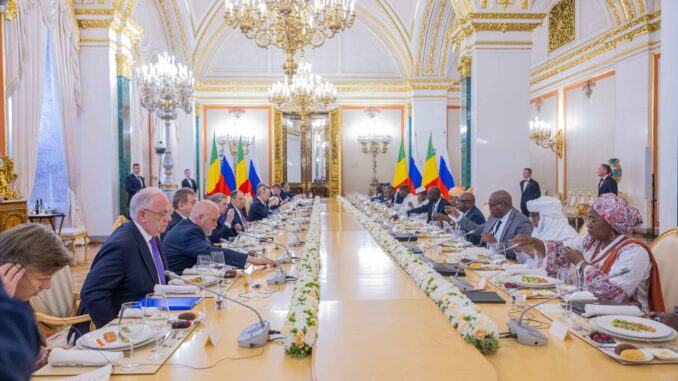
Mali and Russia have signed a raft of new agreements aimed at expanding bilateral trade and intensifying economic collaboration, with a significant focus on nuclear energy. The announcement was made during Malian junta leader Col Assimi Goïta’s official visit to Moscow (June 23 to 25), which featured extended talks with Russian President Vladimir Putin.
The Kremlin disclosed that future cooperation will include areas such as geological exploration, logistics, energy, and humanitarian development. Both parties reaffirmed their mutual commitment to sovereignty and deepened engagement, with Col Goïta thanking Russia for its hospitality and pledging to expand collaboration across multiple sectors.
A key highlight of the agreements is renewed discussion around constructing a Russian-designed nuclear power plant in Mali — a strategic project envisioned to address the country’s critical energy challenges. Putin acknowledged that current trade volumes between the two nations remain modest, but noted a promising upward trajectory. Col Goïta’s visit reflects Mali’s continued pivot towards Moscow and away from former colonial power France, following his 2021 military takeover. This geopolitical realignment is mirrored in neighbouring Burkina Faso and Niger, where military rulers have also sought stronger ties with Russia in the wake of civilian overthrows.
Military cooperation continues to underpin the Mali-Russia relationship. Although the Wagner Group has recently exited the country, Russia’s Africa Corps remains on the ground, supporting Mali’s military-led government. Defence Minister Andrei Belousov emphasised that security and sovereignty are at the heart of Russia’s engagement with Mali. Despite initial justifications for the 2021 coup centring on deteriorating national security, armed violence has worsened in subsequent years. Nonetheless, the two governments remain resolute in pursuing what they describe as “practical results” in the battle to stabilise Mali and assert its autonomy on the global stage.
